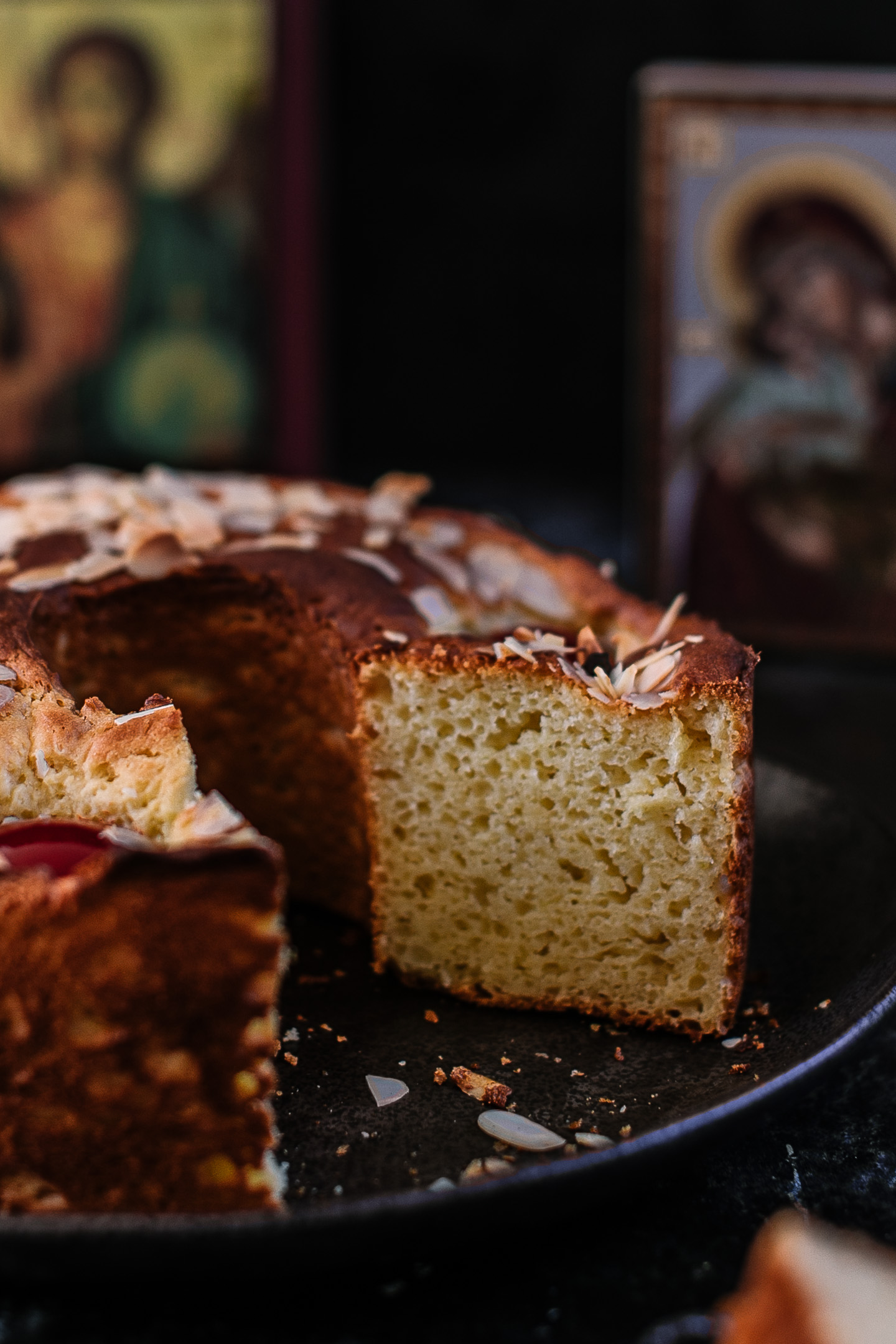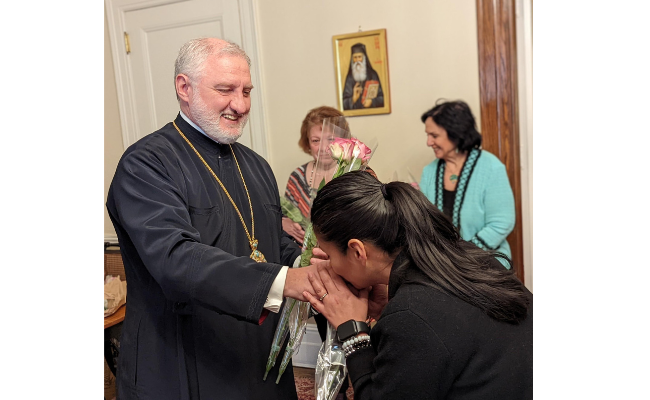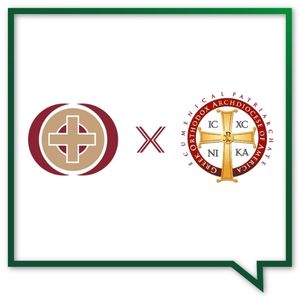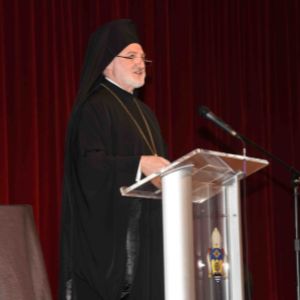Sunday of the Myrrh-Bearing Women
About the beginning of His thirty-second year, when the Lord Jesus was going throughout Galilee, preaching and working miracles, many women who had received of His beneficence left their own homeland and from then on followed after Him. They ministered unto Him out of their own possessions, even until His crucifixion and entombment; and afterwards, neither losing faith in Him after His death, nor fearing the wrath of the Jewish rulers, they came to the sepulchre, bearing the myrrh-oils they had prepared to annoint His body. It is because of the myrrh-oils, that these God-loving women brought to the tomb of Jesus that they are called the Myrrh-bearers. Of those whose names are known are the following: first of all, the most holy Virgin Mary, who in Matthew 27:56 and Mark 15:40 is called "the mother of James and Joses" (these are the sons of Joseph by a previous marriage, and she was therefore their step-mother); Mary Magdalene (celebrated July 22); Mary, the wife of Clopas; Joanna, wife of Chouza, a steward of Herod Antipas; Salome, the mother of the sons of Zebedee, Mary and Martha, the sisters of Lazarus; and Susanna. As for the names of the rest of them, the evangelists have kept silence (Matt 27:55-56; 28:1-10. Mark 15:40-41. Luke 8:1-3; 23:55-24:11, 22-24. John 19:25; 20:11-18. Acts 1:14).
Together with them we celebrate also the secret disciples of the Saviour, Joseph and Nicodemus. Of these, Nicodemus was probably a Jerusalemite, a prominent leader among the Jews and of the order of the Pharisees, learned in the Law and instructed in the Holy Scriptures. He had believed in Christ when, at the beginning of our Saviour's preaching of salvation, he came to Him by night. Furthermore, he brought some one hundred pounds of myrrh-oils and an aromatic mixture of aloes and spices out of reverence and love for the divine Teacher (John 19:39). Joseph, who was from the city of Arimathea, was a wealthy and noble man, and one of the counsellors who were in Jerusalem. He went boldly unto Pilate and asked for the body of Jesus, and together with Nicodemus he gave Him burial. Since time did not permit the preparation of another tomb, he placed the Lord's body in his own tomb which was hewn out of rock, as the Evangelist says (Matt. 27:60).


 Mother's Day at the Archdiocese
Mother's Day at the Archdiocese
 George Demacopoulos: Professor | Author | Archon
George Demacopoulos: Professor | Author | Archon
 On May 4, 2022, His Eminence Archbishop Elpidophoros of America offered the keynote address at the National Workshop on Christian Unity, at the Christ Cathedral in Orange County, CA.
On May 4, 2022, His Eminence Archbishop Elpidophoros of America offered the keynote address at the National Workshop on Christian Unity, at the Christ Cathedral in Orange County, CA.
 His Eminence Archbishop Elpidophoros of America convened the Spring Meeting of the Archdiocesan Council on April 28, 2022. The meeting, held virtually, began with remarks by His Eminence, who discussed the Hundred Year Anniversary of the Archdiocese and the many planned activities including His Archpastoral visits to Metropolises across the country.
His Eminence Archbishop Elpidophoros of America convened the Spring Meeting of the Archdiocesan Council on April 28, 2022. The meeting, held virtually, began with remarks by His Eminence, who discussed the Hundred Year Anniversary of the Archdiocese and the many planned activities including His Archpastoral visits to Metropolises across the country.
 Dunlap, CA — The feast day of the Life-giving Spring of the Theotokos was celebrated at the Holy Monastery of the Theotokos in Dunlop, California. Bishop Athenagoras of Nazianzos represented Archbishop Elpidophoros of America and presided over Vespers and the Divine Liturgy.
Dunlap, CA — The feast day of the Life-giving Spring of the Theotokos was celebrated at the Holy Monastery of the Theotokos in Dunlop, California. Bishop Athenagoras of Nazianzos represented Archbishop Elpidophoros of America and presided over Vespers and the Divine Liturgy.
 Inspired by a faith-centered response to climate change, the green ministries of St. George Greek Orthodox Church of Ocean, NJ and the Roman Catholic Church of St. Anselm, Tinton Falls, came together to “sweep” the beaches of Sandy Hook, part of a statewide cleanup sponsored by Clean Ocean Action, an environmental protection group.
Inspired by a faith-centered response to climate change, the green ministries of St. George Greek Orthodox Church of Ocean, NJ and the Roman Catholic Church of St. Anselm, Tinton Falls, came together to “sweep” the beaches of Sandy Hook, part of a statewide cleanup sponsored by Clean Ocean Action, an environmental protection group.